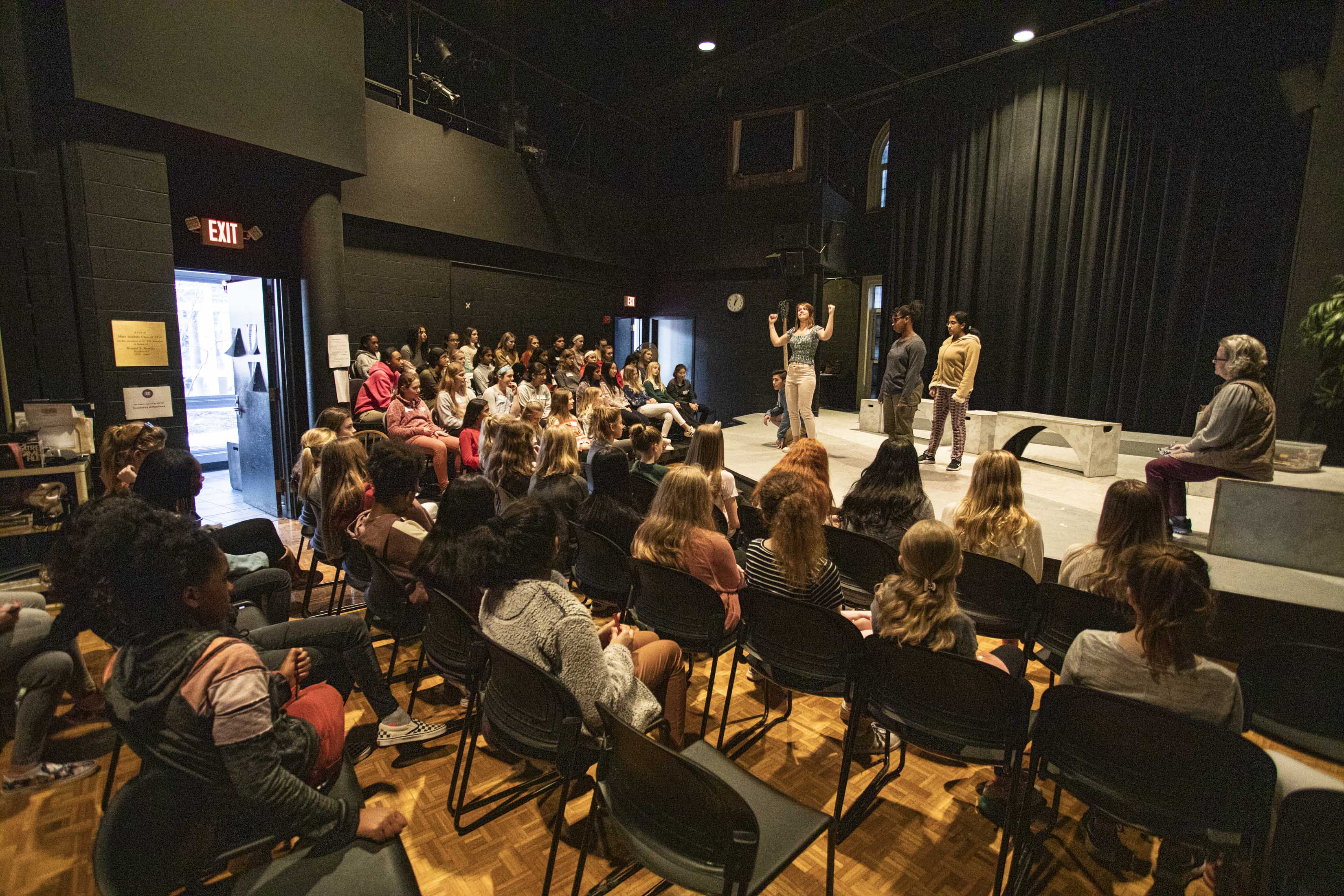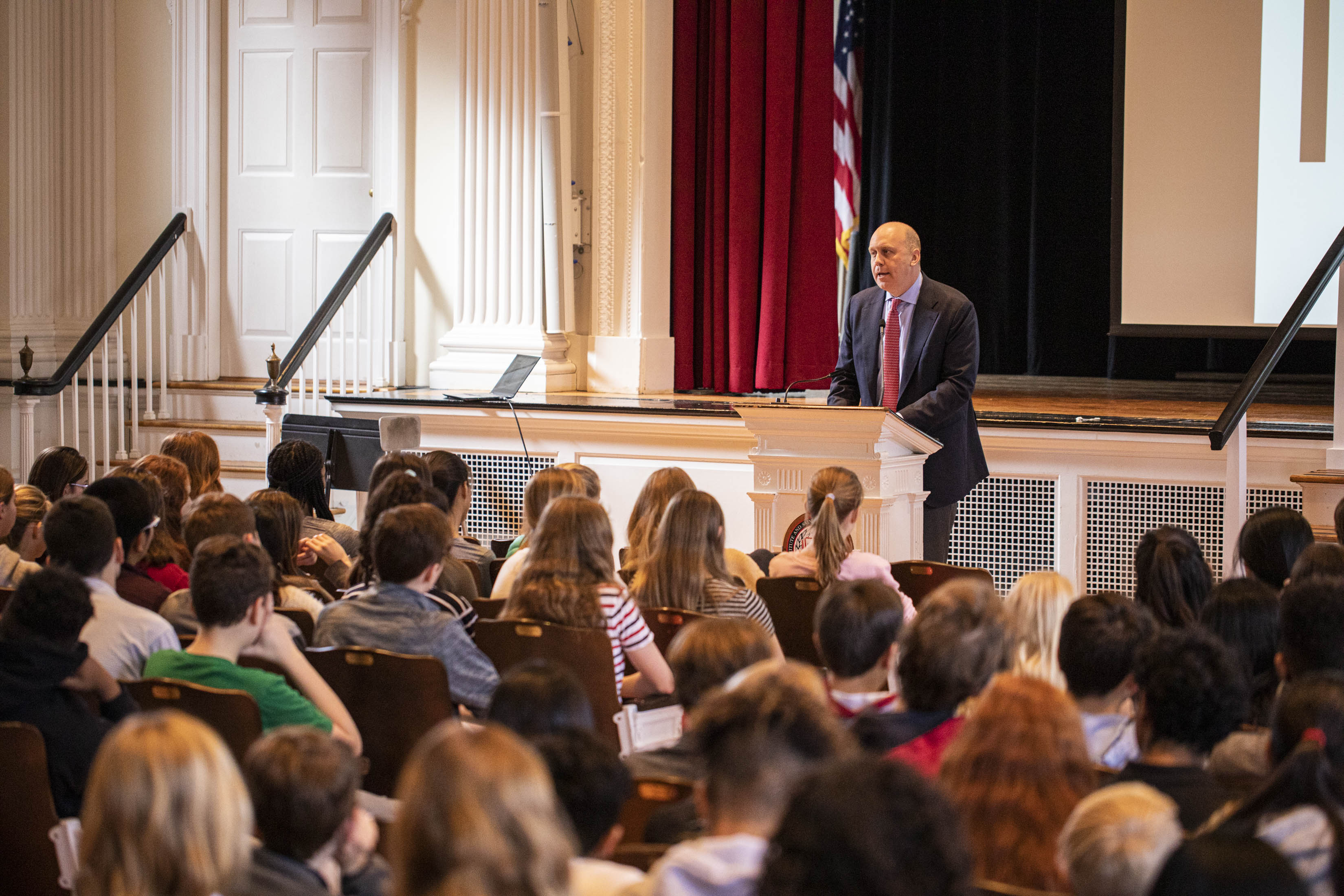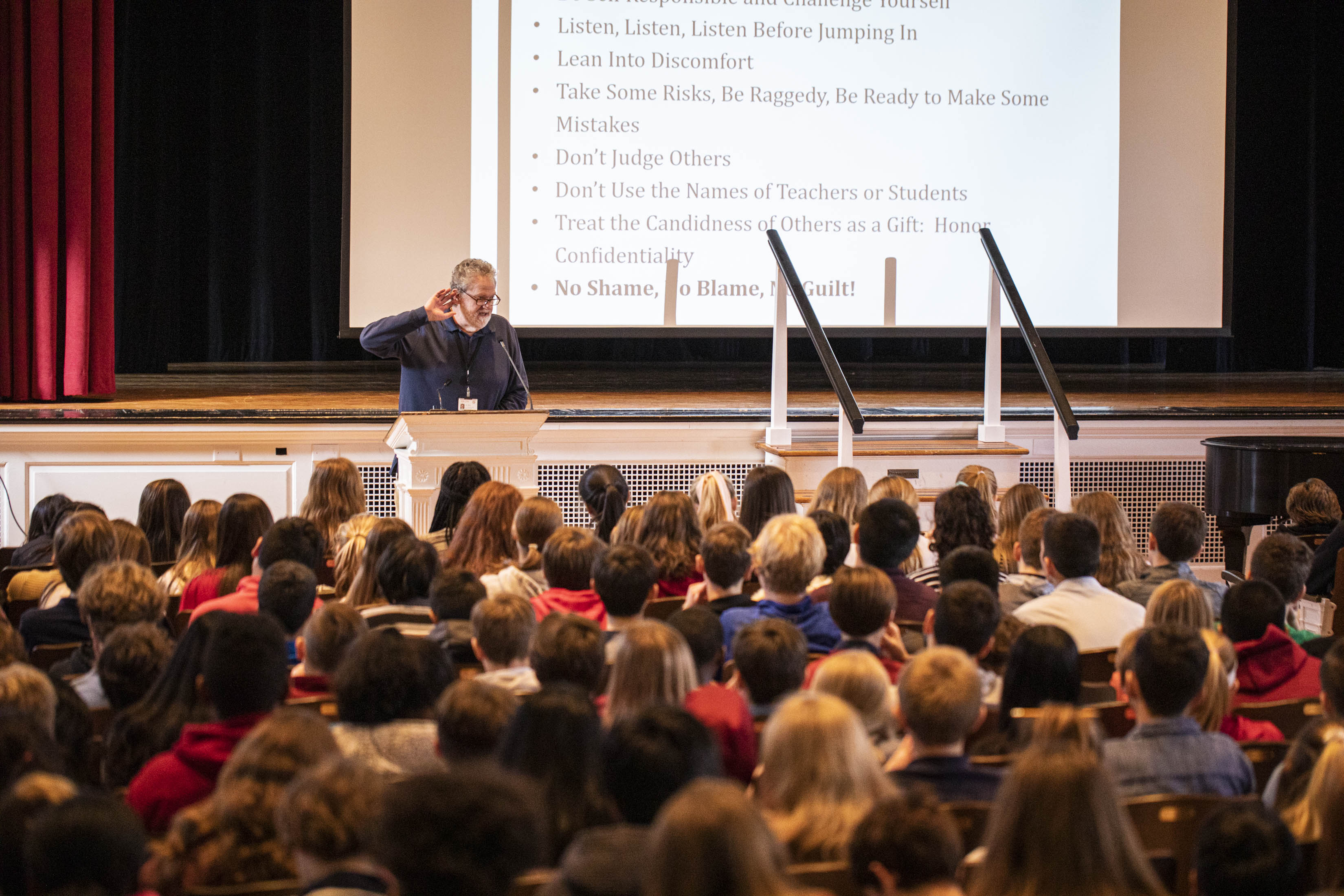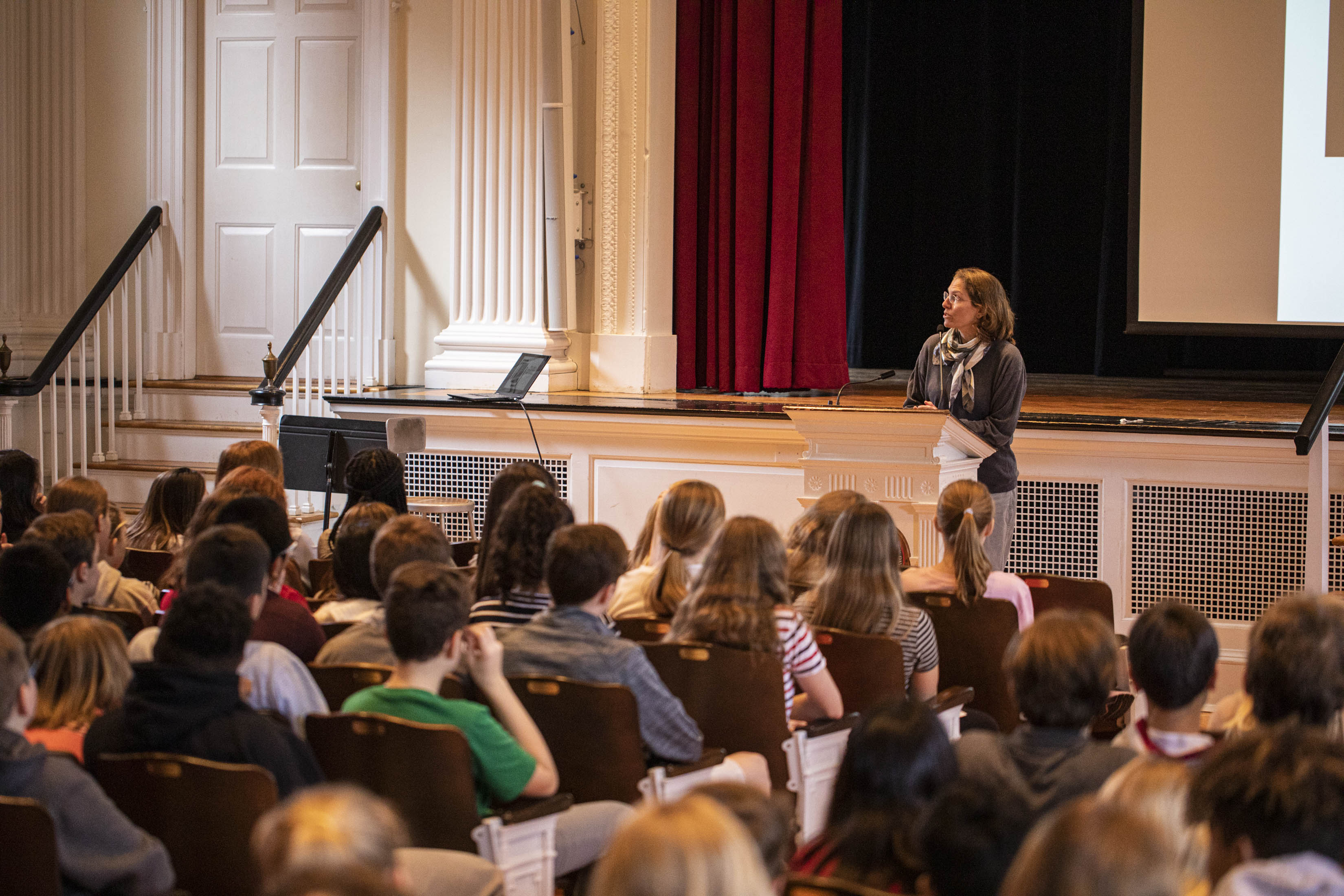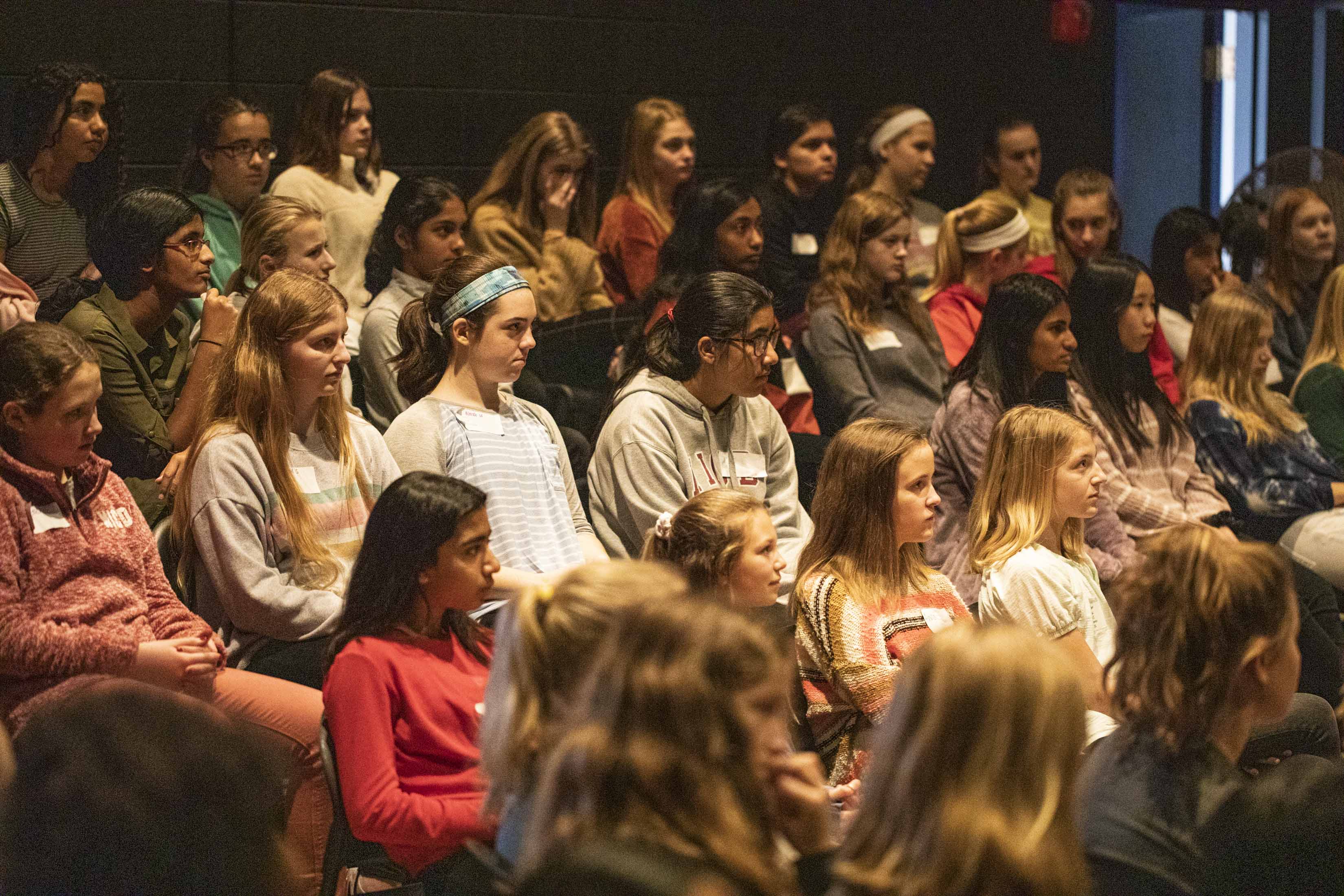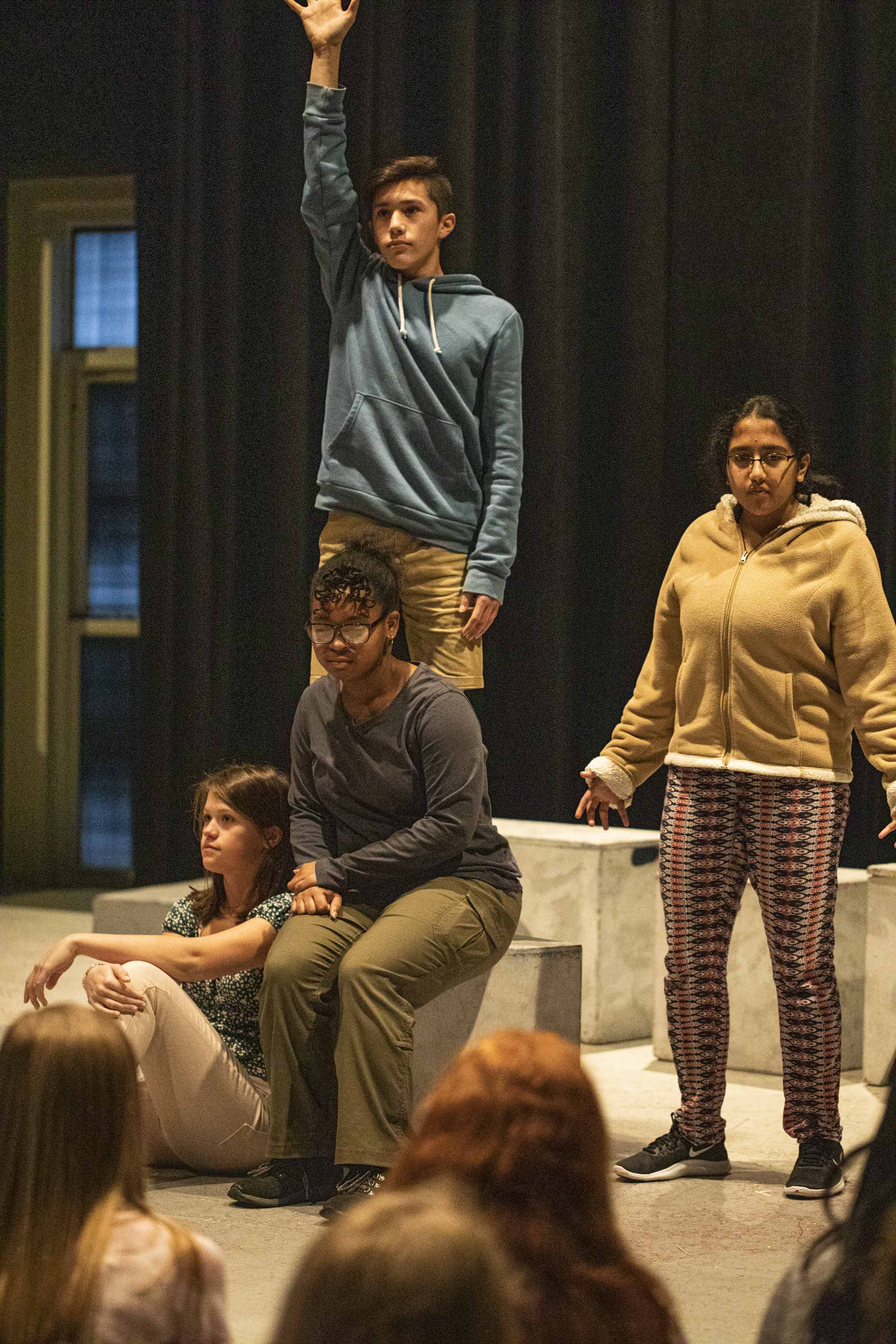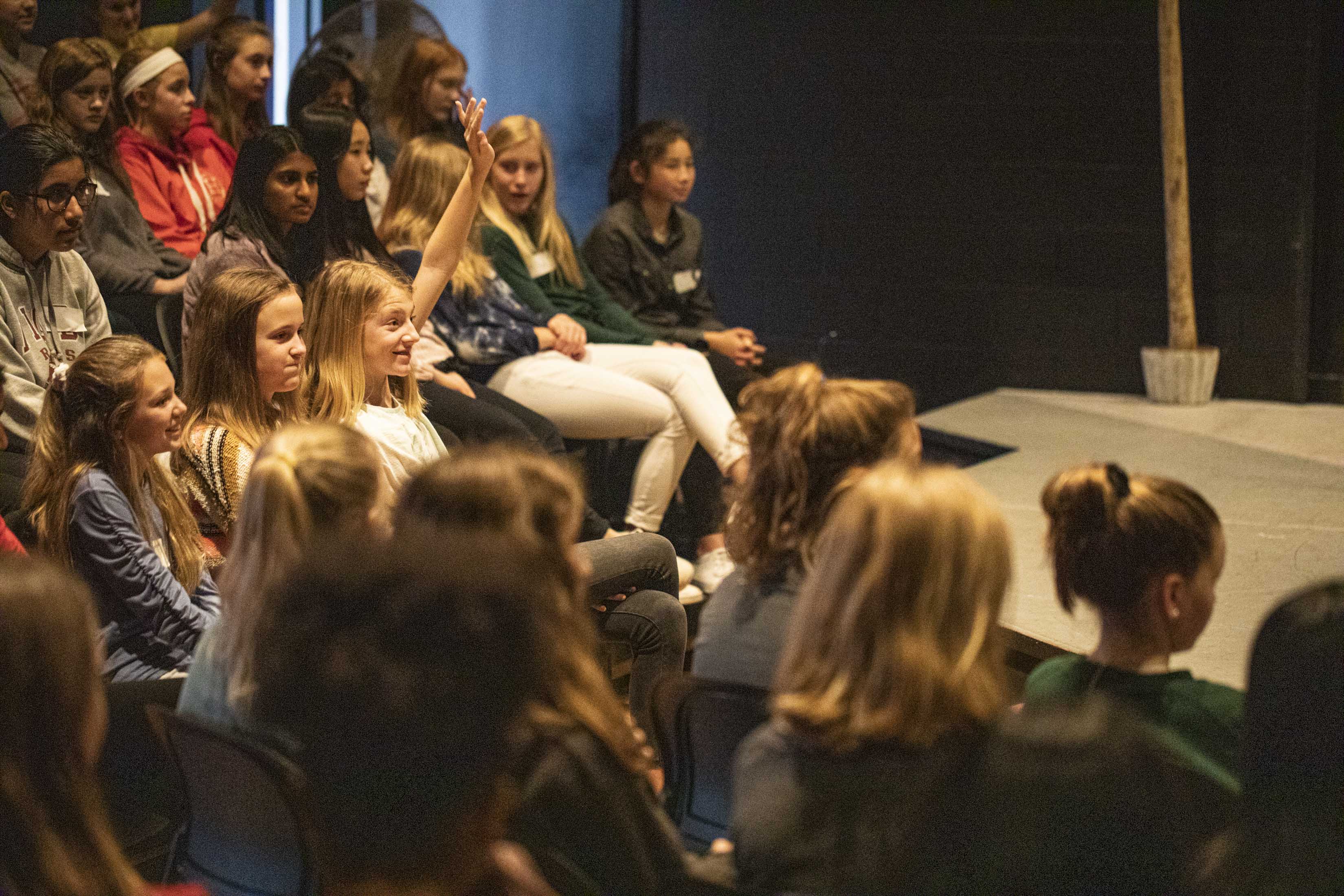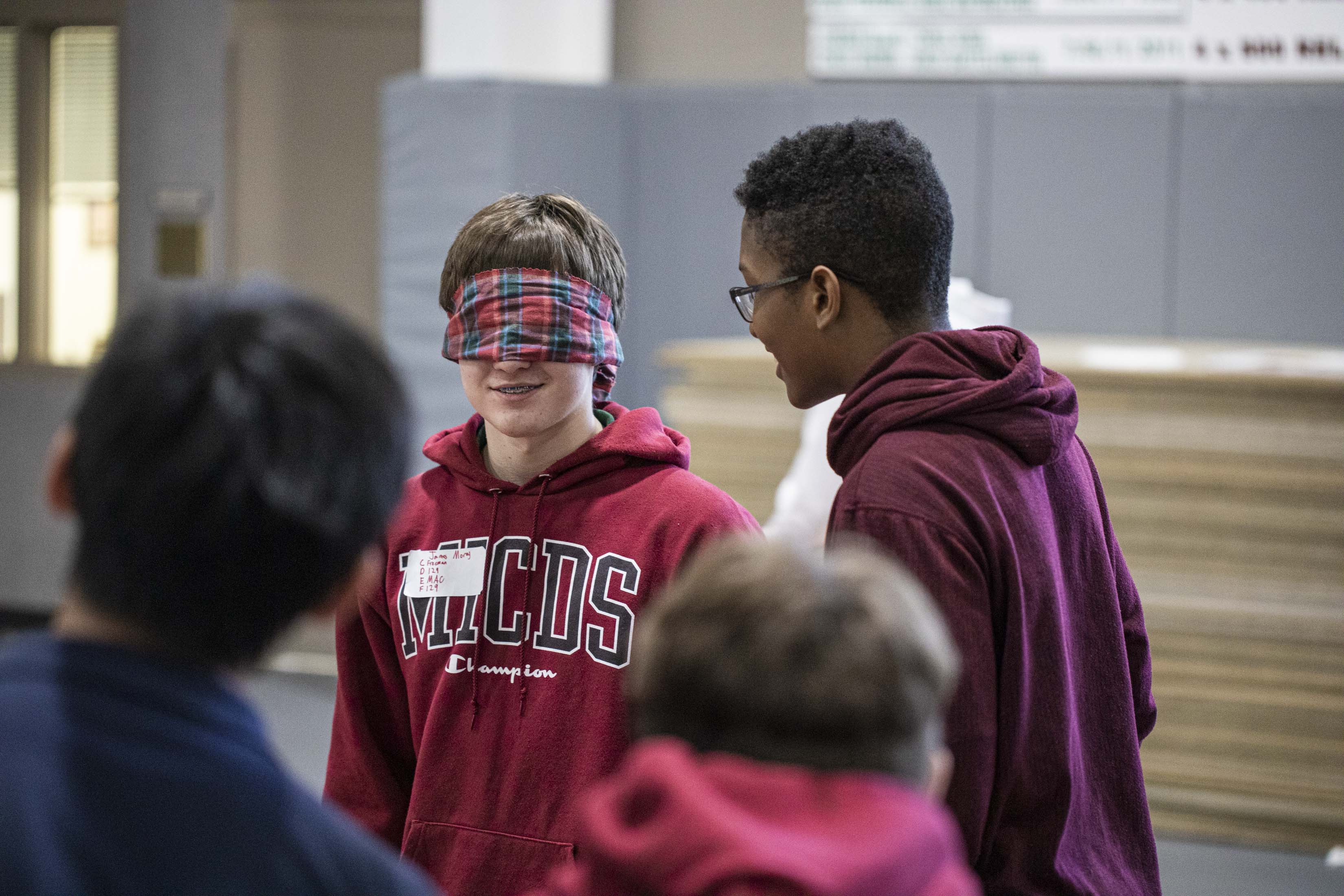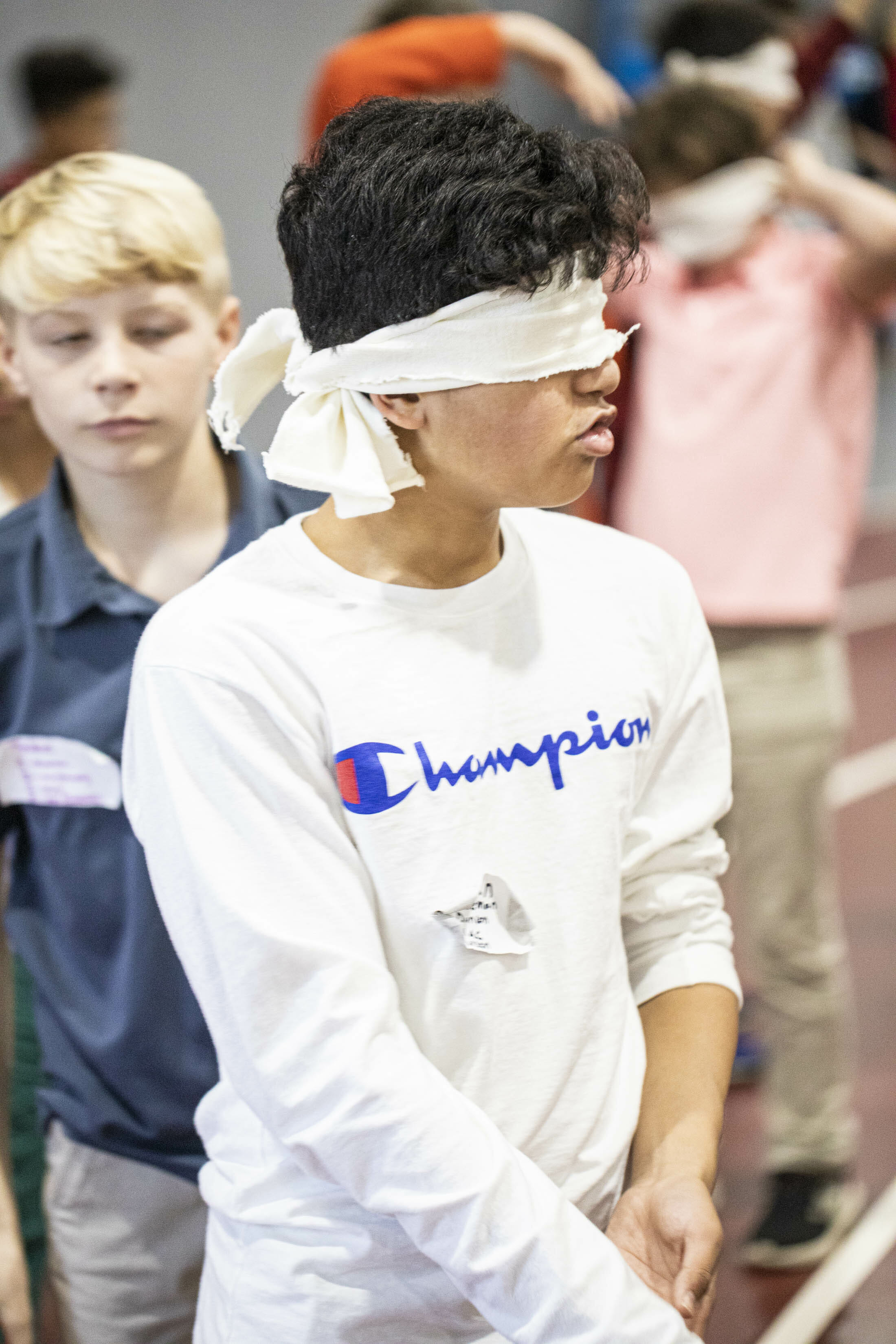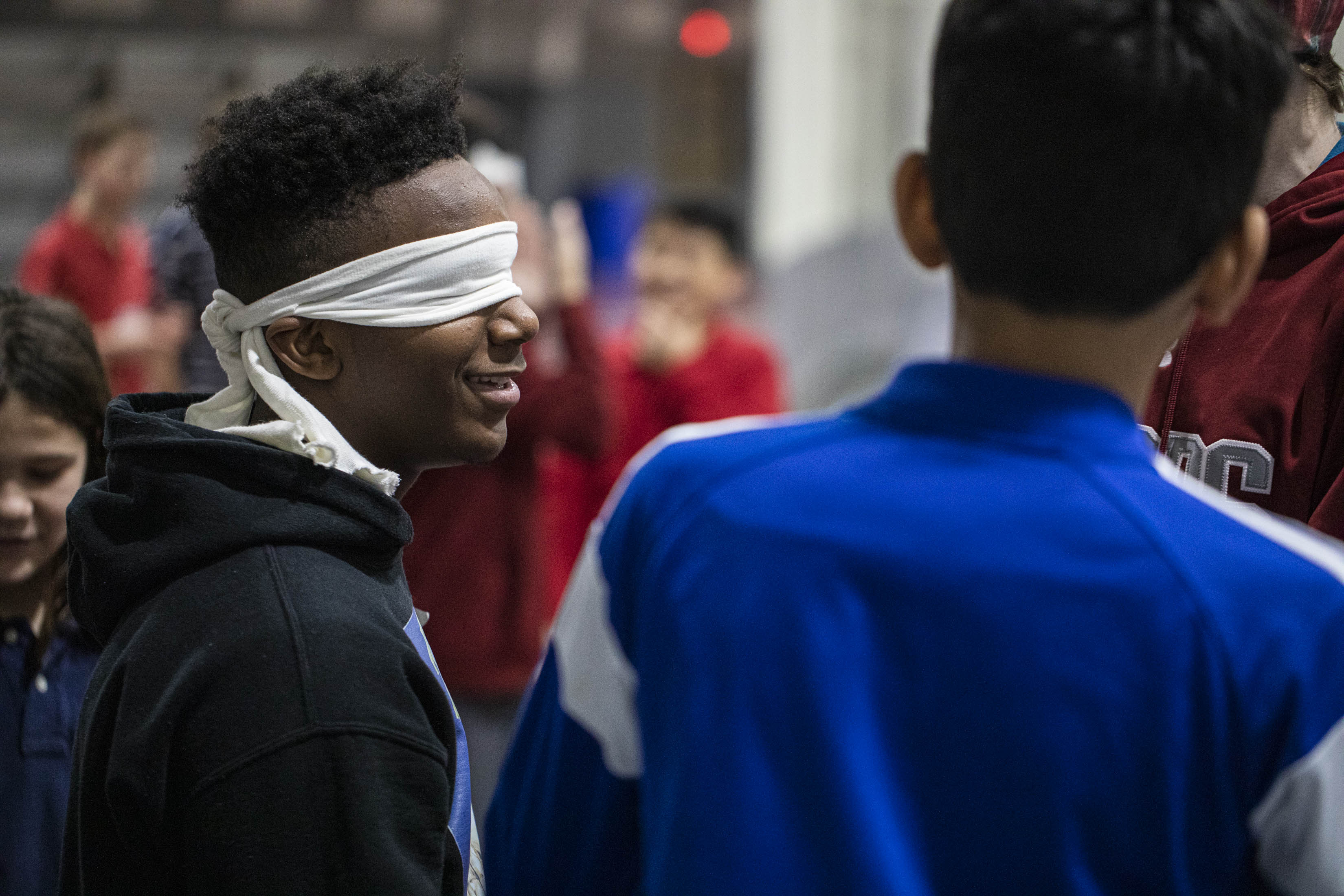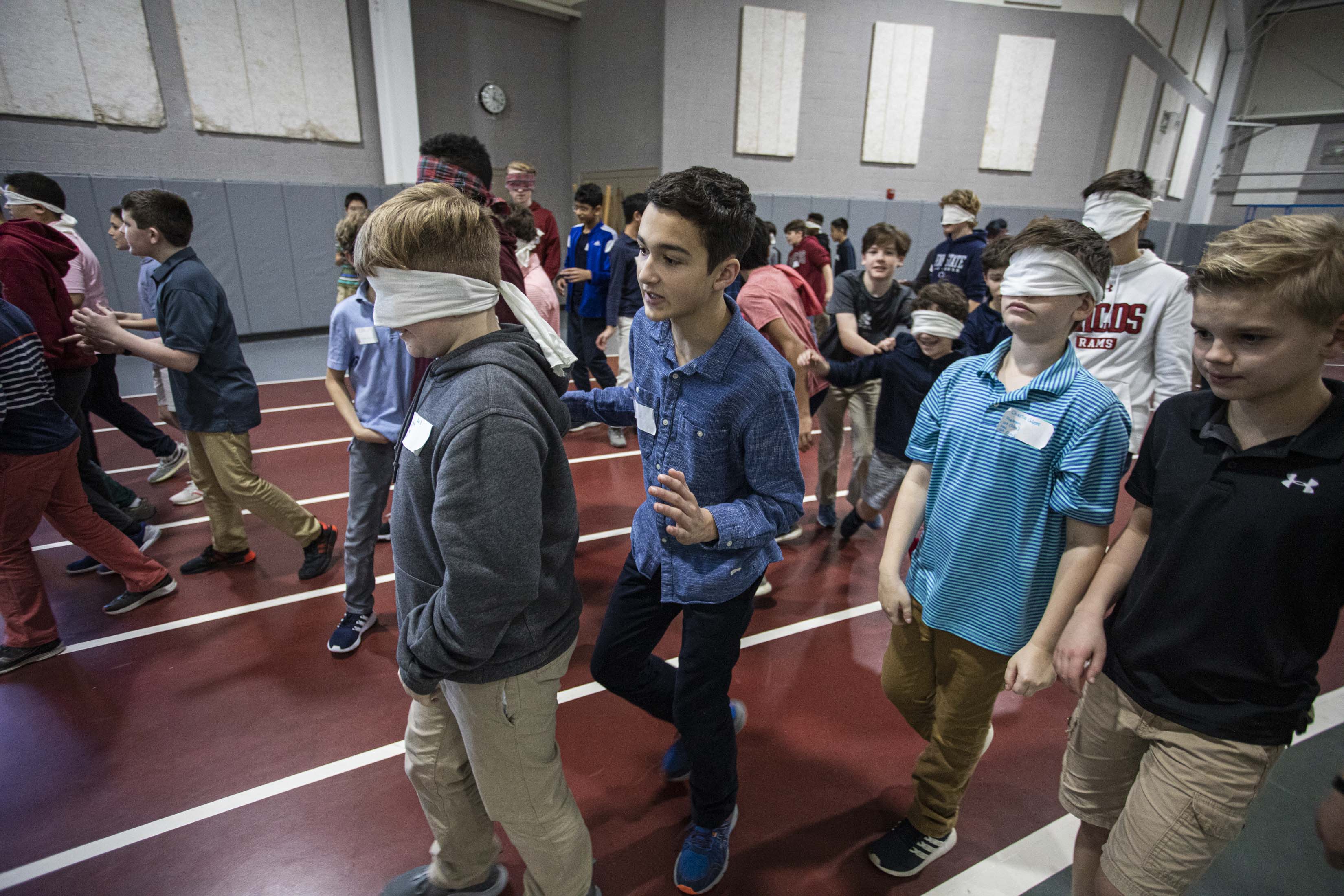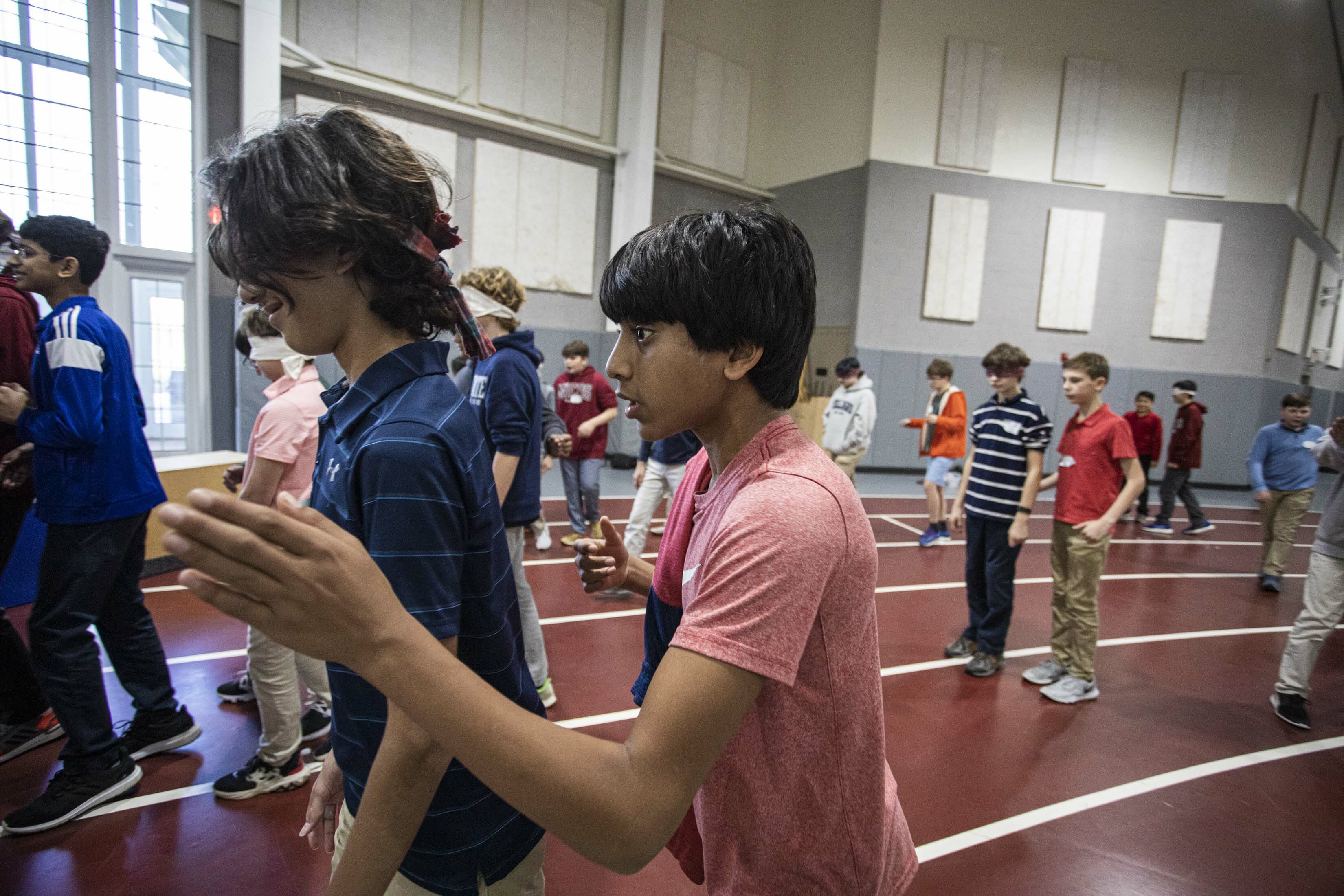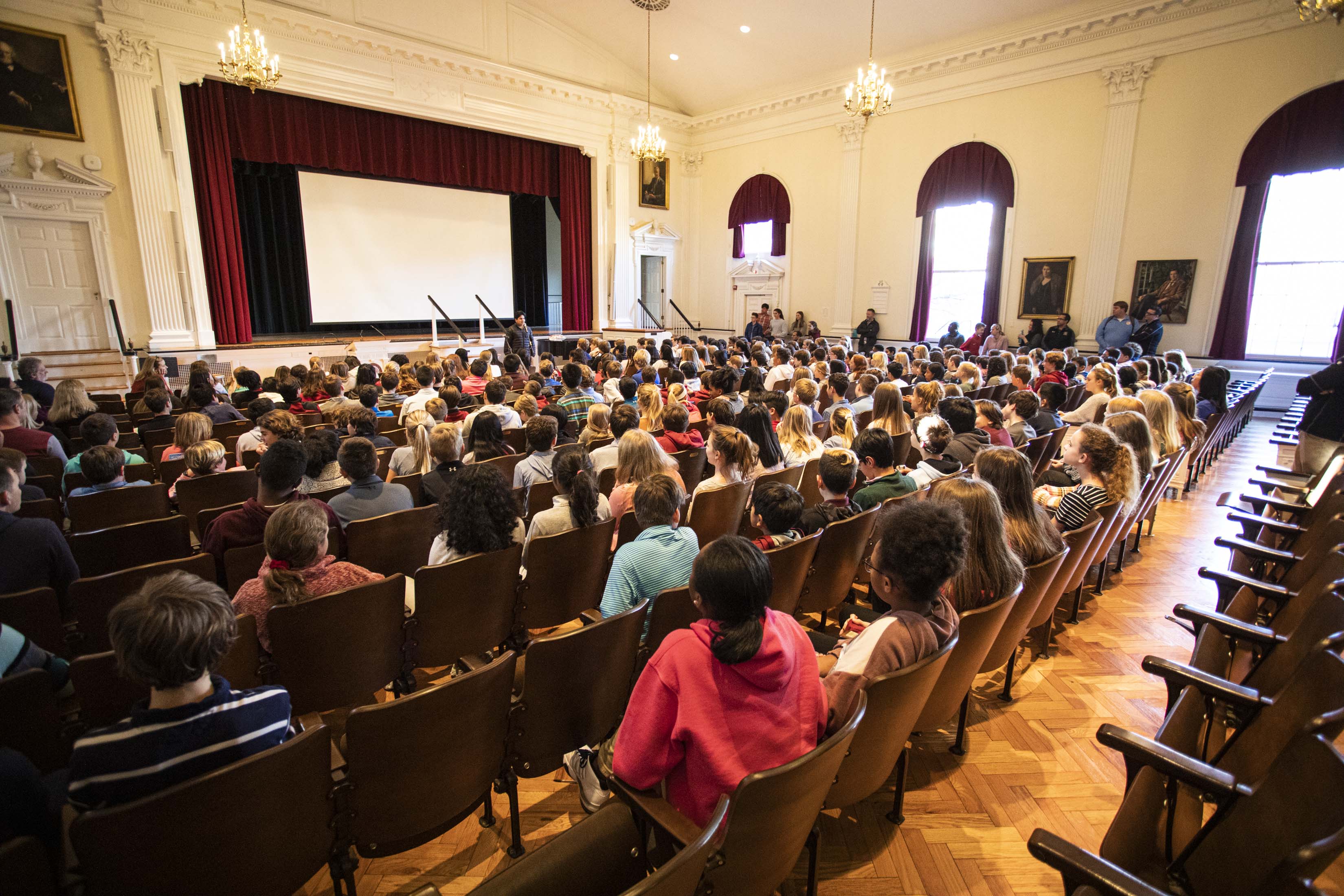The annual 7th and 8th grade Ram Impact Summit (RISE) provided rich opportunities for students to learn more about themselves and each other, to build community and to practice empathy.
Students explored the multiple facets of their own identities – seen and unseen – within their advisories before the opening ceremony kicked things off. Head of School Jay Rainey shared remarks, which you can find in his letter this week, followed by Middle School educators Maggie Dunson and Lev Guter. Dunson shared, “When we are in our groups of friends and we see someone get bullied, we see someone get hurt, we see someone struggling, we can’t wait for someone else to take responsibility. We have to be the ones that stand up and say ‘Hey that’s not okay.’”
Students then broke into small group sessions to learn more about microaggressions and subtext along with how those seemingly complex concepts apply to their Middle School world. Students learned that a microaggression is a small act of cruelty (such as a word, joke or action) directed towards a person or group of people. The act may be unintentional, but, nonetheless, its impact can be painful. The teachers did a great job of contextualizing this concept by providing examples that pertain to Middle Schoolers – for example, when an adult says, “You wouldn’t understand it at your age,” there is a hidden subtext that suggests that Middle Schoolers aren’t as capable of understanding complex concepts, which may not actually be the case. Students also learned about the importance of being an upstander – someone who stands up or speaks out when they witness injustice being done to another – along with practical tactics to upstand when needed. The day also included activities and games such as an exercise to build empathy and an interactive theatrical performance by the Upper School Playback Theater Troupe.
Camden Miller ’24 said, “The RISE conference went well for me. I was in a great group with some great teachers leading us through the topics. We heard some great stories and I felt comfortable enough to share a couple of my own which was nice. This was truly a valuable experience because after hearing from my classmates and teachers, I took away that as human beings, we have to be mindful of how we interact with others. We should all strive to treat others with respect. And if we do say or do something wrong, we need to be able to take responsibility for our actions.”
The closing ceremony offered an open mic opportunity, and several students shared insights on what they learned throughout the day and how they planned to apply that knowledge in the MICDS community and beyond. Head of Middle School Jen Schuckman closed out the summit with a strong call to action: “We owe it to ourselves and to each other to dedicate time and space to make sure we are taking care of each other. You have many years together as a class and decades beyond as members of communities, schools, companies, congregations, families and networks across your lives that will require you to navigate something bigger than yourself. And within these contexts, you will have to follow your own internal compass to be sure you are keeping your own true north front and center.”
Several other students provided thoughtful reflections on their RISE experience for this story.
Nina Schuerer ’25 shared, “My experience with RISE was empowering and eye-opening. It helped me find people within my class that have struggles similar to mine. I believe that RISE gave our whole community a new understanding of each other. My RISE conference was wonderful, and helped me empathize, and really understand microaggressions. I learned that RISE is not something we should go home and forget. RISE is something we need to remind ourselves of daily, so we can become upstanders. We have all been in a position where we have been micro-aggressed, and we all hoped that someone would be our upstander, but unfortunately, most of us never got one. That is why we need to be upstanders as a community, and take small steps to standing up for each other. One of the biggest things I learned was that the phrase, sticks and stones may break my bones, but words will never hurt me, is false. Words are our strongest weapons.”
Grant LaMartina ’25 noted, “I learned a deeper meaning into what microaggressions are, and how to avoid doing them to people…My favorite part of the day was when we went to Freeman Theatre, and people from the high school acted out scenes where we were either upstanders or bystanders.”
Kate Williamson ’24 reflected, “I learned that so many people have things going on in their lives that they deal with and keep to themselves. Microaggression can affect somebody more than we may think. It is important to consider their lives and perspectives before we say a possibly hurtful comment that might not affect us in any way. Compassion and selflessness are valuable life skills that can uplift somebody in a situation with microaggression, and it’s important that we use those skills. It was a valuable experience because it educated me and further supported that we need to be careful about what we say and do.”
Jason Song ’25 remarked, “It was a valuable experience that gave me another view of these microaggressions and their effects. It was a great learning experience.”
Genesis Starks ’24 reflected, “I think RISE was a valuable experience because I was able to gain confidence with the other girls in my class, share my personal stories and figure out how to stand up for myself when I enter those situations in the future.”
Davis Schukar ‘24 shared, “Without RISE, I believe that people would continue to microaggress without even knowing that what they’re doing is wrong.”
Activities and conversations during RISE help students build community and unity. To build on these efforts throughout the year, students will be encouraged to build deeper relationships, be an upstander, and share stories and conversations both informally and programmatically in and out of school.
